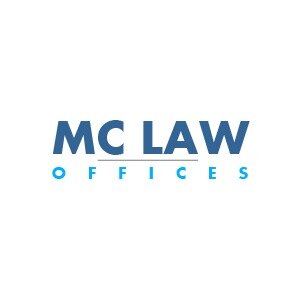Best Copyright Lawyers in Port Louis
Share your needs with us, get contacted by law firms.
Free. Takes 2 min.
List of the best lawyers in Port Louis, Mauritius
About Copyright Law in Port Louis, Mauritius
Copyright law in Port Louis, Mauritius, is governed by the Copyright Act, which provides legal protection to creators of original works such as literary, musical, and artistic works. The law ensures that creators have the exclusive right to use and distribute their work, and it also provides a framework for enforcing these rights. © 2023 Port Louis, Mauritius continues to be an important center for recognizing and enforcing intellectual property rights, which contributes to the thriving creative economy.
Why You May Need a Lawyer
Understanding and navigating copyright law can be complex, and there are various situations where legal advice or representation might be crucial. Some common scenarios include:
- Protecting your original works from unauthorized use or reproduction.
- Handling licensing agreements to monetize your creative works.
- Responding to a copyright infringement claim against you.
- Enforcing your copyright against potential infringers.
- Negotiating terms and conditions for use of copyrighted material.
- Advising on intellectual property rights in business ventures.
- Assisting in international copyright matters and disputes.
Local Laws Overview
Mauritian copyright law is embodied within the Copyright Act, which aligns with international standards set by treaties like the Berne Convention. Here are some key aspects of the local copyright laws:
- Originality Requirement: For works to qualify for copyright protection, they must be original and exhibit a minimum level of creativity.
- Duration of Protection: Generally, copyright protection lasts for the lifetime of the author plus 50 years after their death.
- Exclusive Rights: Authors have the right to reproduce, distribute, perform, display, and create derivative works based on their original work.
- Moral Rights: Authors have the right to claim authorship and to object to any distortions or mutilations of their work that could be prejudicial to their honor or reputation.
- Fair Use: Certain uses of copyrighted material may be allowed without permission under the concept of 'fair use' for purposes such as criticism, comment, news reporting, teaching, scholarship, or research.
- Infringement and Remedies: Unauthorized use of copyrighted material may result in legal penalties, including injunctions, damages, and fines.
Frequently Asked Questions
What qualifies as copyrighted material?
In Mauritius, any original works of literature, music, drama, visual art, film, and certain other intellectual creations can be copyrighted.
How long does copyright last?
Copyright generally lasts for the lifetime of the author plus 50 years after their death in Mauritius.
Is it necessary to register my work for copyright protection?
No, copyright protection is automatic from the moment a work is created and fixed in a tangible medium of expression. Registration, however, can be useful for legal proof of ownership.
Can I use copyrighted material for educational purposes?
Yes, under the 'fair use' provisions, copyrighted material can be used without permission for purposes such as teaching, provided it is non-commercial and properly attributed.
How do I handle a copyright infringement claim?
It's advisable to consult with a lawyer to assess the claim and respond appropriately, either through negotiation, settlement, or legal defense.
What actions constitute copyright infringement?
Unauthorized reproduction, distribution, performance, public display, or the creation of derivative works constitute copyright infringement.
Can I license my copyrighted work to others?
Yes, you can grant licenses to others to use your work under specific terms and conditions, which can be negotiated and formalized in a licensing agreement.
What is a derivative work?
A derivative work is a new creation that is based on an existing copyrighted work, such as a translation, musical arrangement, or dramatization.
Can copyright be transferred or sold?
Yes, copyright can be transferred or sold through a written agreement, allowing the new owner to exercise the rights associated with the work.
How do I enforce my copyright against an infringer?
You can enforce your rights through legal action in court, seeking remedies such as injunctions to stop the infringement, damages for losses, or statutory penalties.
Additional Resources
For more information on copyright matters, you may find the following resources useful:
- Ministry of Arts and Cultural Heritage: Provides information and support on copyright issues.
- Mauritius Society of Authors (MASA): Offers services related to the management and protection of rights for authors and composers.
- Attorney General's Office: Provides legal advice and assistance on matters related to intellectual property law.
- World Intellectual Property Organization (WIPO): Offers resources and training on global intellectual property issues, including copyright.
Next Steps
If you need legal assistance in copyright matters, consider taking these steps:
- Consult with a specialized intellectual property lawyer who has experience with copyright law in Mauritius.
- Document and keep records of your original works and any instances of infringement.
- Explore the resources provided by local governmental bodies and organizations for additional support and guidance.
- Consider registering your works with relevant authorities to strengthen your legal standing.
- Be proactive in understanding your rights and seeking legal advice to effectively protect your intellectual property.
Lawzana helps you find the best lawyers and law firms in Port Louis through a curated and pre-screened list of qualified legal professionals. Our platform offers rankings and detailed profiles of attorneys and law firms, allowing you to compare based on practice areas, including Copyright, experience, and client feedback.
Each profile includes a description of the firm's areas of practice, client reviews, team members and partners, year of establishment, spoken languages, office locations, contact information, social media presence, and any published articles or resources. Most firms on our platform speak English and are experienced in both local and international legal matters.
Get a quote from top-rated law firms in Port Louis, Mauritius — quickly, securely, and without unnecessary hassle.
Disclaimer:
The information provided on this page is for general informational purposes only and does not constitute legal advice. While we strive to ensure the accuracy and relevance of the content, legal information may change over time, and interpretations of the law can vary. You should always consult with a qualified legal professional for advice specific to your situation.
We disclaim all liability for actions taken or not taken based on the content of this page. If you believe any information is incorrect or outdated, please contact us, and we will review and update it where appropriate.











